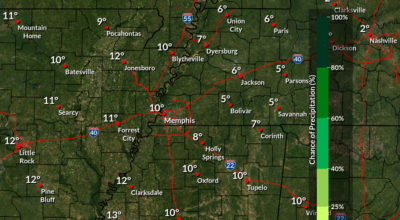When celebrating Christmas was criminal
Published 4:38 pm Monday, December 10, 2018
By Roger Campbell
Commentary
In 1644, the English Parliament outlawed Christmas. No celebrations of any kind were to be tolerated that commemorated the season.
What caused this revolt against celebrating the birth of Christ?
Was there a conspiracy to do away with Christianity? Were political leaders so determined to be inclusive that they feared the wide recognition of one religious holiday might obscure others? Did they think England was getting too religious? Were doubters demanding their rights of privacy from the songs and sounds of Christmas?
Not at all!
What then?
Walter B. Knight, in his book, Knight’s Master Book of Illustrations, says Christmas celebrations were forbidden because they had gotten out of hand. The true meaning of Christmas had become lost in a maelstrom of drunkenness, rioting and depravity. Law abiding people found it necessary to stay indoors for their own safety. And in responding to this crisis, Parliament made celebrating Christmas criminal.
What then brought back the celebration of Christ’s birth in a form that cultivated peace on earth, good will toward men? What enabled people to finally reject carnal cravings that had no reason to be part of the celebration of this historic event?
“Christmas carols,” writes Knight.
Excessive carnal partying gave Christmas a bad name. Musical expressions of the real meaning of Christmas restored it, ending the restrictions placed on its celebration.
Thirty years after Parliament’s ban on celebrating Christmas was invoked, Isaac Watts was born. He was somewhat frail and only five feet tall, but took to books and poetry as a child, learning Latin at age four, Greek at nine and Hebrew at thirteen. Watts wrote more than six hundred hymns, among them being his enduring Christmas carol, “Joy to the World” with its focus on praise and peace. The pleasing tune was adapted from one found in the masterful work of George Frederick Handel, composer of “The Hallelujah Chorus” which still moves crowds to rise in reverence when played by orchestras or presented by choirs at Christmas and Easter. Handel also had a hand in the music of “While Shepherds Watched Their Flocks by Night.”
Other composers kept adding what are now well known Christmas carols: “Silent Night,” “Away in a Manger,” “It Came upon a Midnight Clear,” The First Noel,” “O Little Town of Bethlehem,” “Hark! The Herald Angels Sing,” to name some favorites.
Now, every year during the Christmas season, these classic carols with their life- changing lyrics are rediscovered, rehearsed, played over sound systems in malls and legally presented to millions in myriads of media outlets. This is powerful proof that living out the message of Christmas is stronger than laws, bans or boycotts in accomplishing the purposes of what began in a Bethlehem stable so long ago.
Celebrating Christmas is about more than giving; it’s about living – living out the inner change made in those who have received God’s greatest gift of all.
Roger Campbell was an author, a broadcaster and columnist who was a pastor for 22 years. For more of his material email rcministry@ameritech.net




